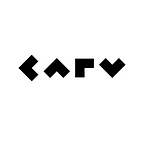CARV x Aethir AMA Recap: Exploring Nodes, Decentralized Infrastructure, Future Collaborations, and Beyond
Following the announcement of a strategic partnership between CARV and Aethir aimed at unlocking opportunities driven by the merge of “User-Owned Data + Decentralized” in the realms of gaming and AI, a detailed AMA session was hosted on May 3rd to delve deeper into this collaboration. The event was led by CARV, with Paul, the Chief Business Officer, and Ambro, the CTO of CARV, at the helm. Joining them as a special guest was Karthik from Aethir, along with notable KOLs like Sanjay and Elizabeth.
The discussion focused on the pivotal role of nodes in decentralized computing, exploring their impact across gaming, AI, and the broader concept of a user-owned internet. This engaging session provided profound insights into how decentralization is not just a trend, but a transformative force in the technological landscape. Here are some of the key questions and insights shared during the AMA.
Question 1: What are the primary advantages of decentralized cloud infrastructure for gaming and AI?
Decentralized cloud infrastructure significantly reduces costs and eases regulatory challenges compared to traditional setups. Karthik from Aethir emphasized, “Decentralization eliminates the heavy capital expenditure of setting up data centers, not only lowering costs for end-users but also expanding the geographical reach of services.” This approach improves accessibility and reduces latency, making it ideal for performance-intensive applications such as gaming and AI.
Question 2: How does decentralization transform user control and data privacy in gaming?
Decentralization revolutionizes how user data is managed, providing gamers with unprecedented control over their digital assets across different platforms. Ambro, CARV’s CTO, noted, “That’s something that’s very unique in the Web3 space. Players maintain complete control over their gaming assets like skins and weapons, which enhances their data privacy by decentralizing control.” This shift ensures that no single entity can access or control a player’s data without consent. Currently, it may seem that many users are not overly concerned about the value of their data. However, this data holds significant worth. By returning ownership of data to users, they can unlock substantial value derived from their behaviors and activities across various platforms, especially in gaming. This reclamation of data ownership is not only empowering but also potentially very lucrative for users.
Question 3: What economic incentives encourage participation in decentralized networks like Aethir’s?
Economic incentives in decentralized networks such as Aethir’s include token allocations that yield passive income for participants. Karthik explained, “We reward our node operators with tokens for their efforts in maintaining and validating the network, aligning their interests with the health and robustness of our infrastructure.”
Question 4: What challenges do decentralized networks face, and how do strategic partnerships help overcome them?
Decentralized networks often grapple with scalability and user experience challenges. Improving the user interface to match the simplicity of traditional web services and deploying efficient consensus mechanisms are crucial. Karthik and Ambro both highlighted the importance of strategic partnerships in this context. “Partnerships like the one between CARV and Aethir leverage combined strengths to enhance service offerings and solve complex challenges more effectively,” Ambro stated.
Question 5: How do nodes enhance network reliability and security in decentralized systems?
Nodes play a pivotal role in enhancing the reliability and security of decentralized networks by validating transactions and maintaining network integrity. “By distributing the workload across a broad array of independent operators, we increase fault tolerance and enhance network security,” explained Ambro, illustrating how this decentralization safeguards against potential attacks and failures.
Question 6: How does decentralization impact the gaming industry, especially regarding player economics and innovation in game development?
Decentralization is transforming the gaming industry by enabling secure and transparent ownership of in-game assets. “This new model allows players to earn real-world value from their in-game achievements,” Ambro shared, highlighting the potential for a new economic model in gaming. This autonomy not only empowers players but also fosters innovation in game development, leading to more collaborative and creative gaming ecosystems.
Question 7: What future developments are in store for CARV and Aethir to enhance user engagement and expand their platforms?
Looking ahead, CARV and Aethir plan to further develop their platforms by incorporating more user-friendly features and expanding their decentralized networks. “We are focusing on partnerships that bring new capabilities like enhanced AI computations and better gaming experiences, aiming to boost both technological offerings and community engagement,” Karthik projected, signaling exciting future advancements for both organizations.
About CARV
CARV is building the modular data layer for gaming and AI, unlocking innovation with access to comprehensive, high-quality data while empowering individuals with data self-sovereignty.
